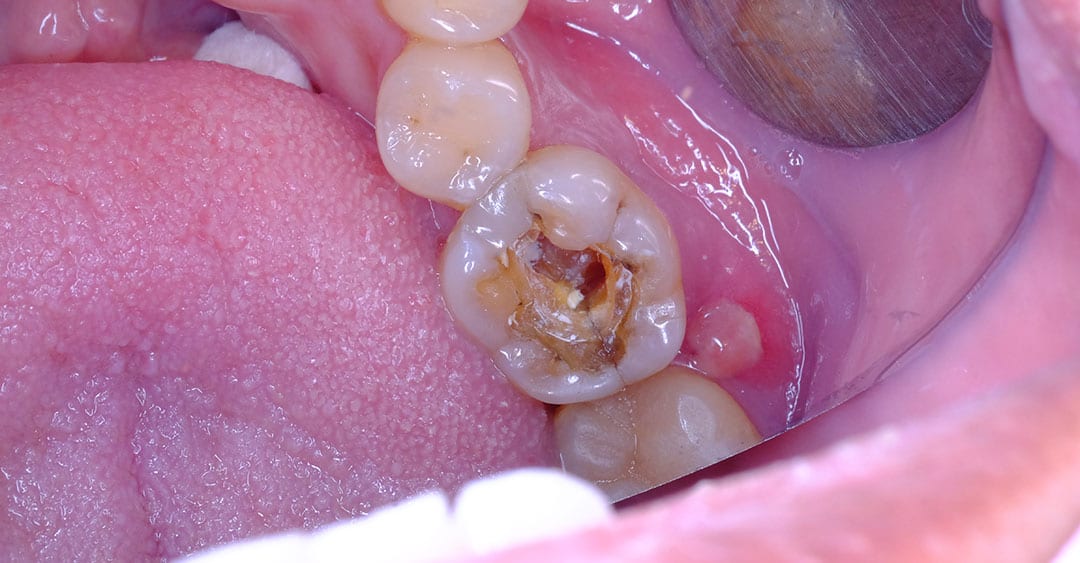Split Tooth No Pain

A split tooth can be a concerning and potentially painful dental issue, but in some cases, individuals may not experience immediate pain. The tooth’s structure and the extent of the split play significant roles in determining the level of discomfort or pain. Understanding the reasons behind a painless split tooth and the potential consequences of not addressing the issue is crucial for maintaining oral health.
When a tooth splits, it can be due to various reasons such as trauma, decay, or cracks that have progressed over time. If the split is minor and hasn’t reached the pulp (the innermost part of the tooth containing nerves and blood vessels), the individual might not feel any pain. This is because the pulp, which is responsible for transmitting pain, remains intact. However, even without pain, a split tooth can still be problematic as it can trap bacteria, leading to infections or further damage to the tooth structure.
In some instances, a split tooth might be asymptomatic because the crack or split is so small that it doesn’t expose the pulp to the oral environment. Yet, the absence of pain shouldn’t lead to complacency. Regular dental check-ups are vital for identifying such issues early on. Dentists use various diagnostic tools, including visual examinations, radiographs (x-rays), and sometimes, a device that applies gentle pressure to detect cracks.
The approach to treating a split tooth largely depends on the severity of the split and whether the pulp is involved. For minor cracks that are primarily cosmetic or don’t expose the dentin (the layer of tissue beneath the enamel), a dental bonding procedure might suffice. This involves applying a tooth-colored resin to repair the crack, improving both the appearance and durability of the tooth.
However, if the split is significant and has penetrated to the pulp, more extensive treatments are necessary. Root canal therapy is often required to remove the infected pulp, followed by the placement of a dental crown to protect the tooth from further damage. In extreme cases, where the tooth cannot be saved due to the extent of the split, extraction might be the only viable option.
Preventing tooth splits or cracks is always the best course of action. Regular dental care, including brushing with a fluoride toothpaste, flossing daily, and visiting a dentist for check-ups and cleanings, can help maintain the health and integrity of teeth. Avoiding biting or chewing on hard objects (like ice or hard candies), and wearing a mouthguard during sports can also prevent traumatic injuries to the teeth.
For those experiencing a split tooth without pain, it’s essential to remember that the absence of pain does not indicate the absence of a problem. The condition can deteriorate over time, potentially leading to severe pain and more complex dental issues. Proactive dental care and regular check-ups are key to early detection and effective management of dental problems, ensuring the longevity and health of one’s teeth.
In conclusion, while a split tooth may not always be accompanied by pain, it’s a condition that warrants attention. By prioritizing dental health through preventive care and seeking professional advice at the earliest signs of trouble, individuals can protect their teeth and maintain a healthy, pain-free smile.
Can a split tooth heal on its own without any dental intervention?
+No, a split tooth cannot heal on its own. Dental intervention is necessary to prevent infection and further damage. Depending on the severity, this could involve bonding, a crown, root canal therapy, or extraction.
How often should I visit a dentist if I have a split tooth but no pain?
+Even if you're not experiencing pain, it's advisable to visit a dentist as soon as possible after discovering a split tooth. Regular follow-up appointments will be recommended by the dentist to monitor the tooth's condition and address any changes promptly.
Can a split tooth be prevented?
+Yes, many cases of split teeth can be prevented by practicing good oral hygiene, avoiding hard foods and objects, and wearing protective gear during sports. Regular dental check-ups also play a crucial role in identifying and treating minor issues before they become major problems.
Understanding the importance of prompt dental care for a split tooth, regardless of the presence of pain, is key to preventing more severe dental issues. By being proactive and maintaining good oral health practices, individuals can reduce the risk of developing such problems and ensure their teeth remain strong and healthy for years to come.


